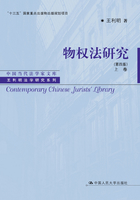The directors of choruses will be the superintendents and regulatorsof these games, and they, together with the guardians of the law, willlegislate in any matters which we have omitted; for, as we said, wherethere are numerous and minute details, the legislator must leave outsomething. And the annual officers who have experience, and knowwhat is wanted, must make arrangements and improvements year byyear, until such enactments and provisions are sufficientlydetermined. A ten years experience of sacrifices and dances, ifextending to all particulars, will be quite sufficient; and if thelegislator be alive they shall communicate with him, but if he be deadthen the several officers shall refer the omissions which come undertheir notice to the guardians of the law, and correct them, untilall is perfect; and from that time there shall be no more change,and they shall establish and use the new laws with the others whichthe legislator originally gave them, and of which they are never, ifthey can help, to change aught; or, if some necessity overtakesthem, the magistrates must be called into counsel, and the wholepeople, and they must go to all the oracles of the Gods; and if theyare all agreed, in that case they may make the change, but if they arenot agreed, by no manner of means, and any one who dissents shallprevail, as the law ordains.
Whenever any one over twenty-five years of age, having seen and beenseen by others, believes himself to have found a marriage connectionwhich is to his mind, and suitable for the procreation of children,let him marry if he be still under the age of five-and-thirty years;but let him first hear how he ought to seek after what is suitable andappropriate. For, as Cleinias says, every law should have a suitableprelude.
Cle. You recollect at the right moment, Stranger, and do not missthe opportunity which the argument affords of saying a word in season.
Ath. I thank you. We will say to him who is born of good parents-Omy son, you ought to make such a marriage as wise men would approve.
Now they would advise you neither to avoid a poor marriage, norspecially to desire a rich one; but if other things are equal,always to honour inferiors, and with them to form connections;-thiswill be for the benefit of the city and of the families which areunited; for the equable and symmetrical tends infinitely more tovirtue than the unmixed. And he who is conscious of being tooheadstrong, and carried away more than is fitting in all hisactions, ought to desire to become the relation of orderly parents;and he who is of the opposite temper ought to seek the oppositealliance. Let there be one word concerning all marriages:-Every manshall follow, not after the marriage which is most pleasing tohimself, but after that which is most beneficial to the state. Forsomehow every one is by nature prone to that which is likest tohimself, and in this way the whole city becomes unequal in propertyand in disposition; and hence there arise in most states the veryresults which we least desire to happen. Now, to add to the law anexpress provision, not only that the rich man shall not marry into therich family, nor the powerful into the family of the powerful, butthat the slower natures shall be compelled to enter into marriage withthe quicker, and the quicker with the slower, may awaken anger as wellas laughter in the minds of many; for there is a difficulty inperceiving that the city ought to be well mingled like a cup, in whichthe maddening wine is hot and fiery, but when chastened by a sobererGod, receives a fair associate and becomes an excellent andtemperate drink. Yet in marriage no one is able to see that the sameresult occurs. Wherefore also the law must let alone such matters, butwe should try to charm the spirits of men into believing theequability of their children"s disposition to be of more importancethan equality in excessive fortune when they marry; and him who is toodesirous of making a rich marriage we should endeavour to turn asideby reproaches, not, however, by any compulsion of written law.















